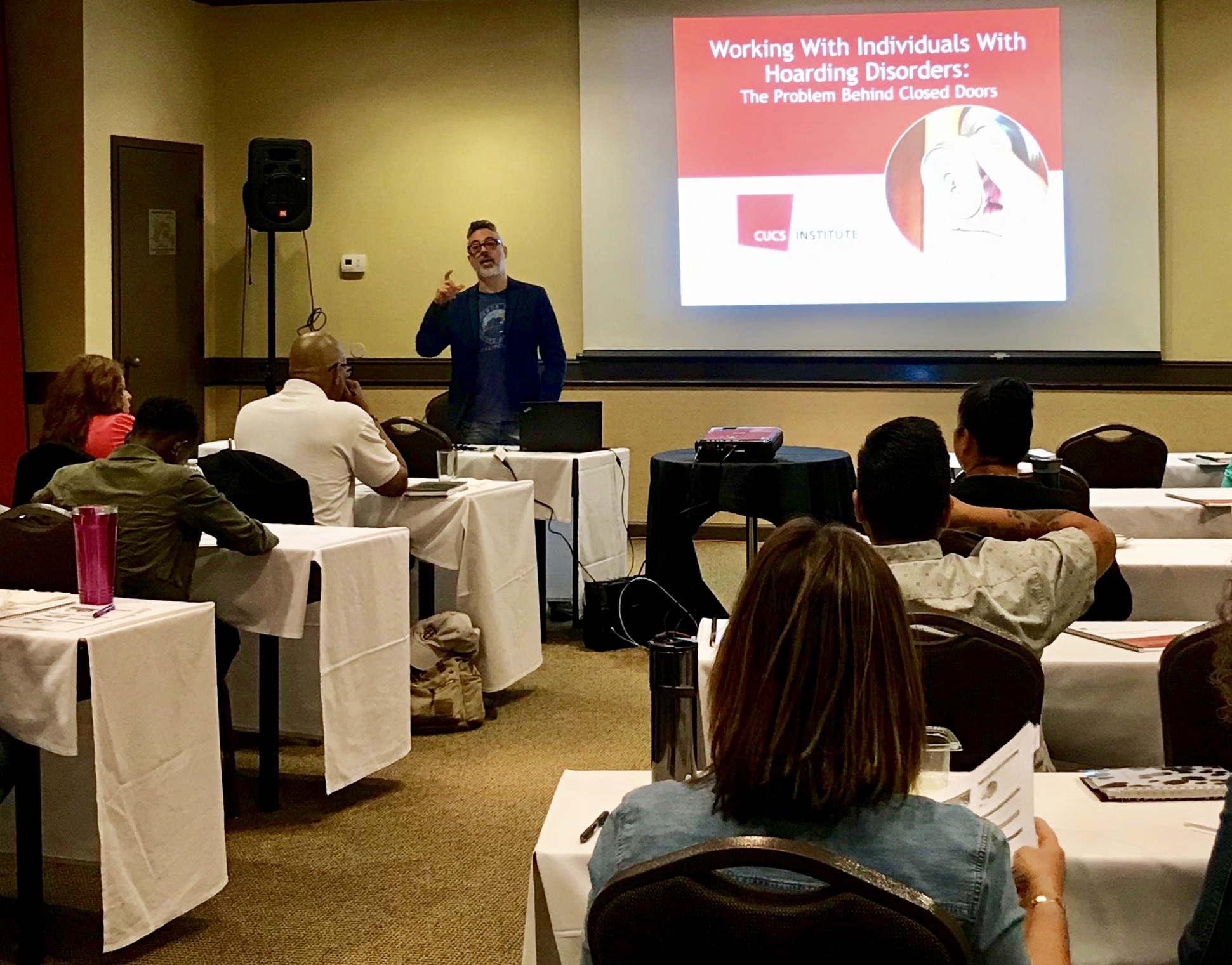Blog

Providing Support from Coast to Coast
July 29, 2019Los Angeles is experiencing a rapid increase in homelessness. As the Los Angeles Times reports, the 2019 point-in-time count released this June by the Los Angeles Homeless Services Authority (LAHSA) shows a 12% increase in homelessness in LA County. Per this count, 58,936 people in LA are homeless, and 63% of those people are experiencing homelessness for the first time. Service providers throughout the county are working tirelessly to help this influx of people in need. While these numbers may be shocking, there is still a lot of hope and a lot of hard work being done to rise to the challenge.
In response to the emerging crisis, the CUCS Training Institute has partnered with the Public Mental Health Partnership, which includes the Los Angeles County Department of Mental Health and UCLA, to facilitate training and professional development among teams delivering intensive field-based services to individuals with severe mental illness in Los Angeles County. So far, the program has trained over 500 participants from more than 50 community-based mental health agencies across the county.
The six month pilot program for this partnership was launched for March 2019, and has been extended through June 2020. The pilot program includes trainings on 26 different topics, including case management, recognizing mental health conditions, motivational interviewing, and other key concepts. Team members from CUCS’s healthcare program (Janian) are also providing coaching sessions to develop, integrate, and imbed psychiatrists onto outreach teams. In addition, leaders from LA have had the chance to visit NYC and observe CUCS’s initiatives in the hopes of incorporating changes into the system at large.
One key goal of these trainings is to create cohesion throughout the different service providers in the region. “Getting people on the same page, getting best practices out there, and getting all of their homeless services thinking the same way and having similar skill sets will mean that even communication across lines of staff-to-staff will be helped from it,” says Jennifer Gholston, Director of the CUCS Institute. She adds, “The idea is that if everybody is working on similar platforms and skill sets, then there is going to be more continuative care for the clients they serve.”
A big takeaway for CUCS trainers is the persistence and dedication that the people in their trainings have shown in the face of heartbreaking conditions. “It’s just great to see the enthusiasm that they bring against all of these odds that are so stacked against them and to keep generating that,” says James Kennedy, Director of Training & Consulting Services at the CUCS Institute and head of the LA trainings. “These are people that are really involved. It has given me a new respect for people who do this work, both in New York and in LA. The job they do is just phenomenal.”
Our team views these trainings as a way to give professionals in LA more tools in their toolkit as they work with the particular challenges of their community. In LA, there is a major shortage of housing resources available, and there are often additional requirements for placement in a housing program. Many of LA’s homeless population are living in tent cities (which are typically not found in NYC), and much of the work being done today is through street outreach. Additionally, LA is widely spread out, so providers have a large amount of ground to cover.
In the face of these obstacles, the evidence-based practices that CUCS has developed over the decades have the power to help workers on the front lines of this crisis provide much-needed aid to those impacted. One mantra that instructors have applied in the trainings is: “If you can’t provide the big carrot (housing), look for smaller carrots.” In other words, if it’s difficult to get someone connected with housing, look for other goals for them to work towards.
“People are engaged and they really want to learn,” says CUCS trainer Allison Costine. “I just did this Job-Related Stress training, and I really saw the stress of being an outreach worker who is on the front lines…People were in tears because they care so much.”
The trainings are already giving workers more confidence as they work in the field. “I feel like I have gained a better understanding of how to deal with clients I once saw as too difficult,” writes one attendee in their evaluation.
As the LA training partnership continues to blossom, CUCS is proud to share our knowledge, support our colleagues, and build brighter futures together.
